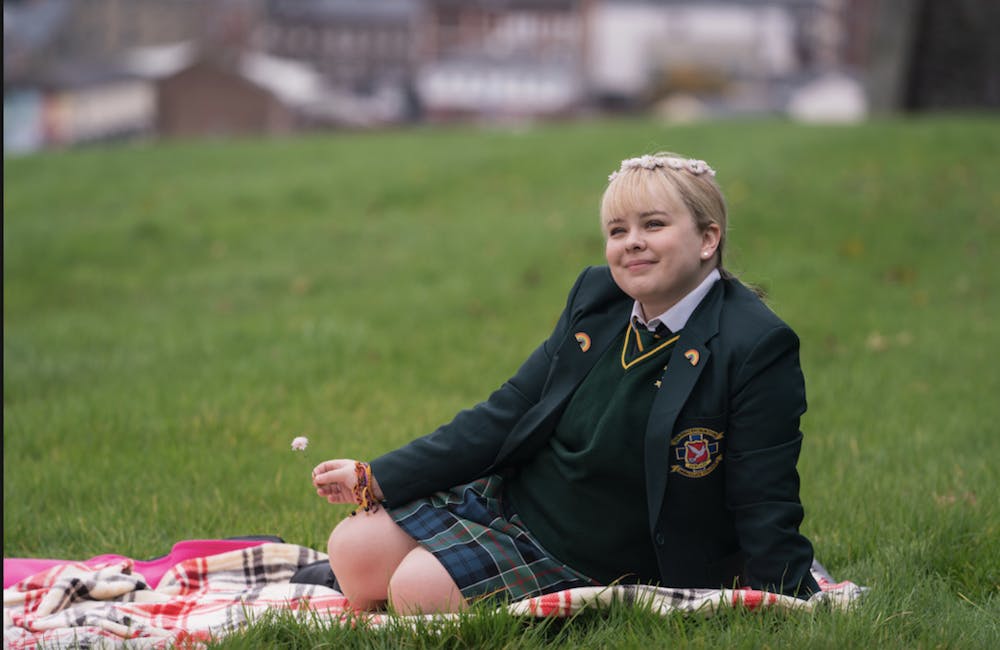The third and final season of “Derry Girls,” a sitcom about the challenges of adolescence amid the Troubles in Northern Ireland, released in America on Netflix this month after airing on British Channel 4 earlier this year.
In light of the recent pandemic, the third season of the show resonates with the audience in a way that the first two seasons, which aired in 2018 and 2019, respectively, did not. The show’s political and social significance has far transcended “the girls’ ” hometown of Derry.
The last season of the series includes all of the usual dark humor and irony that writer Lisa McGee utilized in the first two seasons; the girls get up to no good in Londonderry — or “Derry,” as they and their Catholic community call it. At the beginning of the season, Erin (Saoirse-Monica Jackson), Orla (Louisa Harland), Claire (Nicola Coughlan), Michelle (Jamie-Lee O’Donnell) and James (Dylan Llewellyn) break into school in order to uncover their exam grades the night before they’re set to be released. They also travel to an amusement park in Portrush and accidentally leave part of their posse behind. And they even excitedly plan Erin and Orla’s 18th birthday party. In the background of the girls’ shenanigans lie the Troubles, the 30-year conflict over Northern Ireland between the Protestant unionists and Roman Catholic nationalists.
But watching “Derry Girls” today still feels current for the show’s young audience. Watching the girls worry about their exam scores while the world around them is imploding provides a humorous yet informative perspective on Irish history — even though Ireland’s future hangs uncertain before them, the four teenagers manage to go about their lives, having awkward unresolved sexual tension, sneaking out after hours and cursing to their hearts’ content. Similarly, today’s youth must go about their lives despite the pandemic’s still-present challenges.
The third season of “Derry Girls” deals with much more than merely teenagers being teenagers amid conflict. It grapples with what it means to grow up and how our surroundings influence that meaning. While the protagonists fight, make up, fall in love and worry about school, they also struggle to accept the changes coming their way. For some, this means working through the loss of a parent. For others, it’s the responsibility of having to vote.
No matter what the girls are dealing with, they must come face-to-face with the fact that life goes on. In the finale, as she grapples with voting for the Good Friday Agreement that would bring peace to Northern Ireland, Erin tells James that even though she is afraid to grow up and leave school, “things can’t stay the same. And they shouldn’t.”
With this statement, the political comedy comes to a close. Even though we don’t know where the characters are headed in the future, and the sexual tension between Erin and James does not get resolved, the show ends with a lesson of finding hope, beauty, friendship and humor amid war, coming-of-age and straight up awkwardness. The overarching message is that life goes on. The world gets better and the characters recover from the tragedy around them. And as we work to recover from the fact that this hilarious sitcom is over, we may be able to use its example to start working through our own journey during the pandemic and, like the girls, grow past it.





